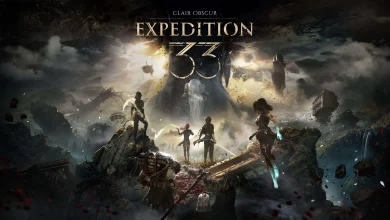Canada’s federal income tax brackets are changing in 2026 – National

Changes could be on the way for federal income tax brackets next year, according to the Canada Revenue Agency.
If the legislation working its way through Parliament becomes law, the proposed changes would mean Canada’s lowest earners may pay slightly less income tax starting in 2026.
Some income tax cuts were introduced prior to the summer of 2025 by the federal government, and the new changes would essentially apply the same cut for the entire tax year.
2:20
Federal budget aims to balance spending with controversial cuts
Prime Minister Mark Carney’s so-called “middle-class tax cut” introduced in the spring proposed dropping the federal income tax from 15 per cent to 14 per cent for the lowest tax bracket.
Story continues below advertisement
In 2025, that lowest bracket covered the first $57,375 of taxable income.
Get weekly money news
Get expert insights, Q&A on markets, housing, inflation, and personal finance information delivered to you every Saturday.
Starting in 2026, that will adjust to reflect the indexed inflation rate.
In 2026, the lowest income tax bracket will cover the first $58,523 of income.
More on Money
More videos
The second level of tax bracket in 2025 applied a tax rate of 20.5 per cent to the portion of income that falls between $57,375 and $114,750. In 2026, that bracket and rate will cover the portion of income between $58,523 and $117,045.
The third-tiered tax bracket in 2025 applied a rate of 26 per cent to income between $114,750 and $177,882. That bracket in 2026 will cover the portion of income between $117,045 and $181,440.
The fourth tax bracket covered income between $177,882 and $253,414 in 2025, applying a tax rate of 29 per cent. In 2026, that rate will cover the portion of income between $181,440 and $258,482.
The highest income tax bracket in 2025 applied a tax of 33 per cent to the portion of income exceeding $253,414. In 2026, that rate will apply to the portion of income above $258,482.
“Income is reported and tax is calculated on an annual basis. To reflect a one-percentage-point cut in the lowest tax rate coming into effect halfway through the year, the full-year tax rate for 2025 will be 14.5 per cent and the full-year rate for 2026 and future tax years will be 14 per cent,” says the CRA on its website.
Trending Now
-
U.K. teen vanishes on hike near Dracula’s castle in Romanian mountains
-
ICE taps Canadian firm for 20 armoured vehicles despite Trump trade war
Story continues below advertisement
3:03
Carney’s Cabinet Priorities: Tax relief promised, budget delayed
Ryan Minor, director of tax at Chartered Professional Accountants Canada, says some of the reasoning behind using inflation as a metric to justify the widening of the brackets is to match the purchasing power of Canadians.
“Your incomes are going up, but your real purchasing power isn’t going up. So there’s a built-in mechanism to increase the brackets to recognize that your purchasing power hasn’t changed, it’s going up in inflation,” says Minor.
“Goods cost more, two per cent more in this case, and the theory being nobody’s better or worse off.”
The lowest income level is known as the Basic Personal Amount, or BPA, which includes income considered exempt from all federal income taxes.
In 2025, the BPA is all income up to $16,129 for taxpayers earning $177,882 or less. After this threshold, the BPA decreases.
Story continues below advertisement
In 2026, the BPA will increase to $16,452.
© 2025 Global News, a division of Corus Entertainment Inc.





